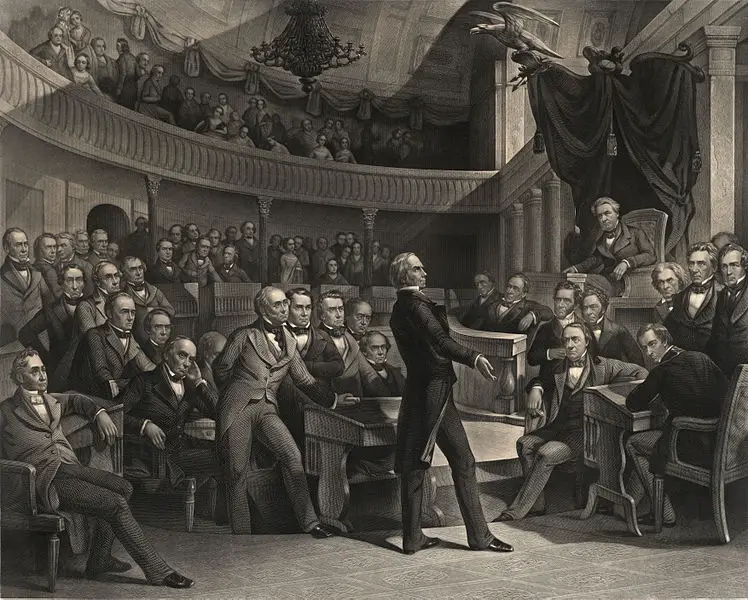The Question of Slavery
Slavery in America was accepted as part of life as colonists made their way from many European countries.
Slavery had been adopted in the European countries as they sent out exploration ships and conquered many countries.
The Europeans looked at other cultures and peoples as less than human and as barbarians because they weren’t Christians.
This attitude was brought over to all of the new lands that the Europeans took over.
- By the 1800s, slavery in America had become a seriously controversial topic. The southern states relied on slaves to do all of the work on the plantations and were a required condition for their economy. The northern states rejected slavery and wanted all people to be free.
- As settlers moved west the expansion included the territories that had previously been part of Mexico. The Compromise of 1850 addressed the topic of slavery as a temporary measure. It allowed the area of California to be added to the Union as a state free of slavery. Even though slavery was frowned upon in Washington, D.C. there were questionable actions by some of the new territories such as New Mexico and Utah that gave the citizens the right to choose to allow slavery. The Compromise proved to be part of the reason that both the north and south were divided on slavery.
- When the Union won the Mexican-America War the area of land that was now part of America included the states of Nevada, Utah, California, and parts of New Mexico, Wyoming, Arizona, and Colorado in what was called the “Mexican Cession.”
- Both the Congress and the Senate made attempts to talk about slavery including ending the slave trade. Those that were opposed to freeing slaves wanted to add enforcements to the fugitive slave laws that allowed recapture of runaway slaves.
- When gold was discovered in California in the 1840s, it was that state that pushed politicians to accept a state that wanted to be a “free state.” However, in 1848, Zachary Taylor was elected President and he supported having slaves. Even with his personal opinion of pro-slavery, he supported the admission of California as a free state.
- When it came to the other territories that were being added, Congress had a lot of heated discussions. The final passing of the Compromise of 1850 included four main areas that was hoped to make almost everyone happy. The stricter Fugitive Slave Law required all territories and states to help return escaped slaves or face a fine. This caused a problem in that there wasn’t any way of not including free Black citizens in the north. Congress avoided the topic of slavery with the new territories of Utah and New Mexico, instead letting the people living there make the choice to have slaves or not. The final law was passed for a total ban on slaves in Washington, D.C. and California was admitted to the Union as a free state.
- The compromised may have given the southern states some of what they were hoping for, but the tensions between the North and South continued. The lack of decisions for the westward expansion states allowed continued violence. This was especially true because many of the new citizens heading west were immigrants from a lot more countries and it opened the discussion of slavery for people other than just those brought from Africa.
- Slavery ultimately became the main reason for the explosion into the Civil War which lasted from 1861-1865.

Political Map of the United States 1856
Q&A:
What law did Congress pass to try to make both the northern and southern states happy on the topic of slavery?
The Compromise of 1850
What was gaining the western states after the Mexican-American War called?
Mexican Cession
What was different about the topic of slavery for adding the state of California?
California was added as a free state
To avoid the controversy of slavery for many of the new western states, what did Congress let them do?
Choose whether they wanted to have slaves or not
What western territories were added to the United States after the Mexican-American War?
Nevada, Utah, California, and parts of New Mexico, Wyoming, Arizona, and Colorado
What did the tensions about the topic of slavery eventually cause in the United States?
The Civil War




